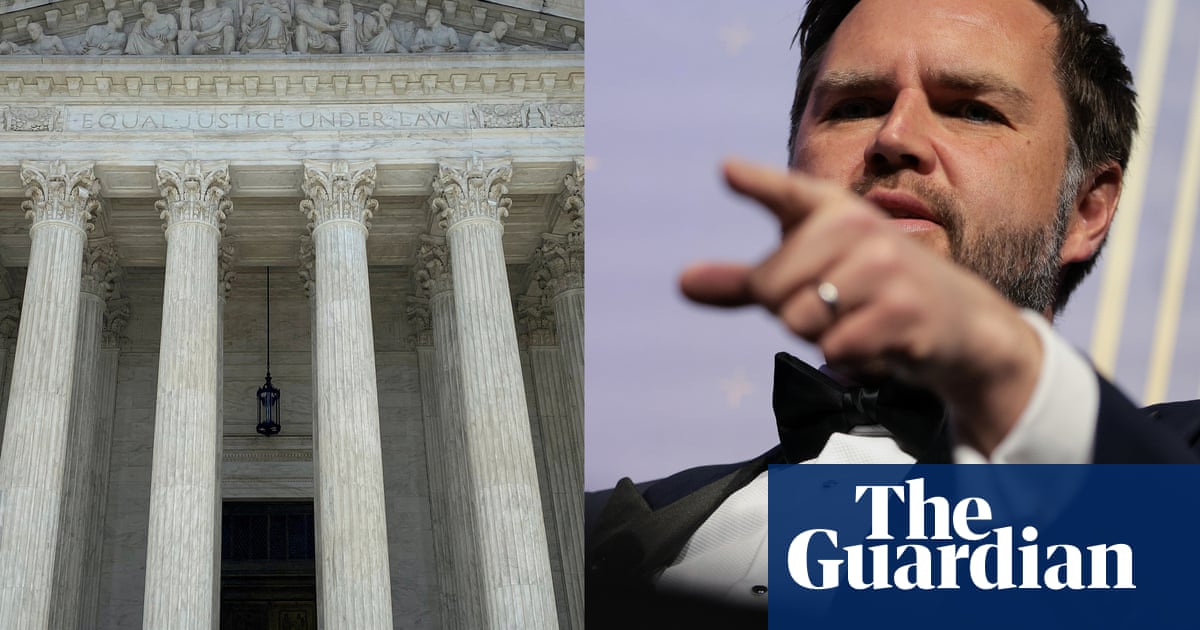TheUS supreme courtagreed on Monday to hear a case that could further erode restrictions on money in politics, in a challenge that comes in part from Vice-President JD Vance.
The National Republican Senatorial Committee, National Republican Congressional Committee, Vance and Steve Chabot, a former Republican congressman from Ohio, are challenging limits set on how much political parties can spend in coordination with candidates. The case was filed when Vance was a senatorial candidate, in 2022.
The court’s landmark Citizens United ruling in 2010 threw away limits on outside spending on elections, allowing corporations and unions to inject unlimited money into elections as a matter of free speech.
The current challenge fromRepublicansmakes a similar argument, claiming that limits on how much spending can be coordinated with a campaign impede their first amendment rights.
It also comes at a time where unfettered outside spending has become a norm inUS politics. The case is challenging limits to what’s called “coordinated” spending between a party and the campaign, while independent expenditures, those often made by political action committees, have been unlimited since Citizens United.
Thelimitsthemselves vary depending on population and which office a candidate is seeking. On the low end, a candidate for the US House of Representatives in a state with multiple representatives would be limited to $63,600, while a Senatecandidate in a state with a large voting age population would be nearly $4m.
The US court of appeals for the sixth circuit upheld the limits based on a prior supreme court ruling in 2001 on coordinated spending, but the plaintiffs have argued this 2001 decision is outdated given other more recent campaign finance decisions.
The Trump administration filed a brief in the case that aligned with Republicans, and the justice department called on the supreme court to consider the case. Democratic groups have asked to intervene to defend the existing limits.
The case will be heard in the court’s next term, which starts in October. ScotusBlog, the much-watched website written by lawyers and legal scholars,saysthe case “may be the first potential blockbuster of October term 2025”.
